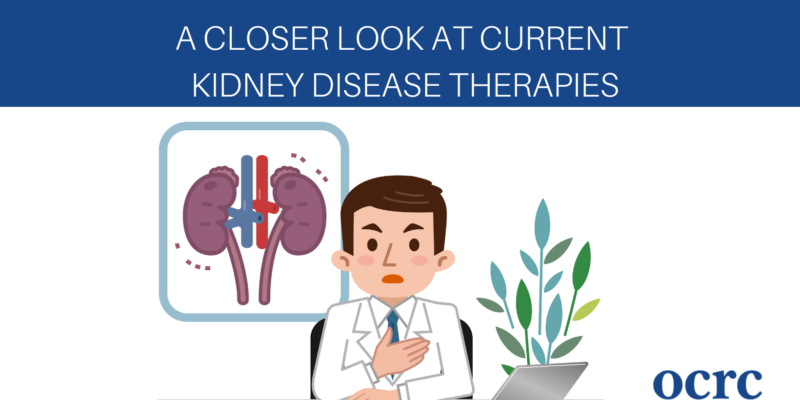
The kidneys play a vital role in the human body: they filter the blood and remove waste, prevent excessive buildup, regulate blood pressure, and more. When the kidneys don’t function properly, the body doesn’t function properly (and vice versa). In fact, there are quite a few health problems that can be both a cause and an effect of chronic kidney disease.
Chronic kidney disease affects more than 1 in 7 adults in the United States. As its name implies, chronic kidney disease is a long-term health issue. While there is currently no direct cure, there are a few different lifestyle and treatment options that can slow the progression of kidney disease and give your body the boosts it needs to allow the kidneys to do their job effectively.
Common treatment options for chronic kidney disease include:
The body’s organs all work together to keep you healthy. The liver breaks down harmful substances and excretes waste into the blood; kidneys cleanse the blood of that waste; the heart pumps that blood throughout the body.
This means that if one organ is unhealthy, there’s a good chance the rest of your body will be affected. For those with chronic kidney disease (or anyone who wants to take preventative action), doctors typically recommend the following lifestyle changes:
Unless directed otherwise by a medical professional, it’s also a good idea to avoid over-the-counter non-steroidal anti-inflammatory drugs (or NSAIDs) such as Ibuprofen, Aspirin, and Aleve, as these can damage the kidneys.
While there are currently no medicines that specifically combat chronic kidney disease, there are some commonly prescribed drugs that can address its causes or associated complications.
For example:
Additionally, the diabetes medicine Farxiga (dapagliflozin) was approved last year by the FDA and has been shown to be effective in reducing the risk and slowing the progression of kidney disease.
When the kidneys can no longer function on their own, kidney dialysis may be necessary. Dialysis is not a cure for kidney disease; it is a procedure designed to mimic the kidney’s functions by removing waste, salt, and excess water and keeping the body in balance.
There are two types of dialysis:
Kidney dialysis is generally a lifelong treatment for those with chronic kidney disease.
Like kidney dialysis, a kidney transplant may be necessary during the advanced stages of kidney disease. A kidney transplant is a major surgical procedure that consists of replacing a kidney that’s no longer functioning properly with a healthy donor kidney.
There are often long wait times prior to a kidney transplant, as it relies on donors. After the procedure, the individual must take immunosuppressants for the duration of their life in order to prevent the body from rejecting the new kidney.
It’s important to note that the right treatment for an individual depends on a few different factors: the cause of kidney disease, the stage of kidney disease, and any current health issues and medications. If you have chronic kidney disease, a nephrologist will be able to work with you to determine the appropriate course of action.
Interested in volunteering for an OCRC clinical study? Check out our current kidney study here.
